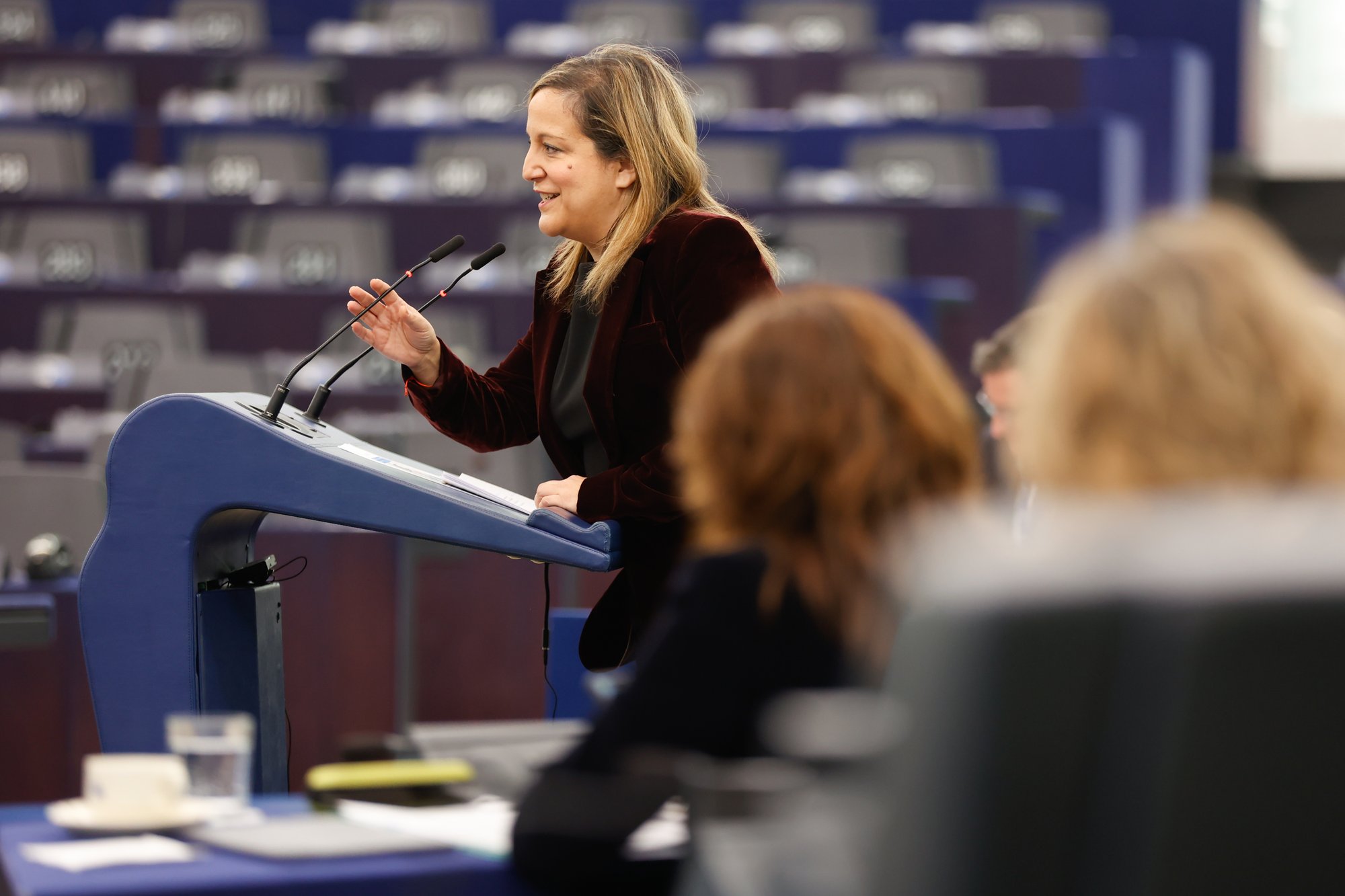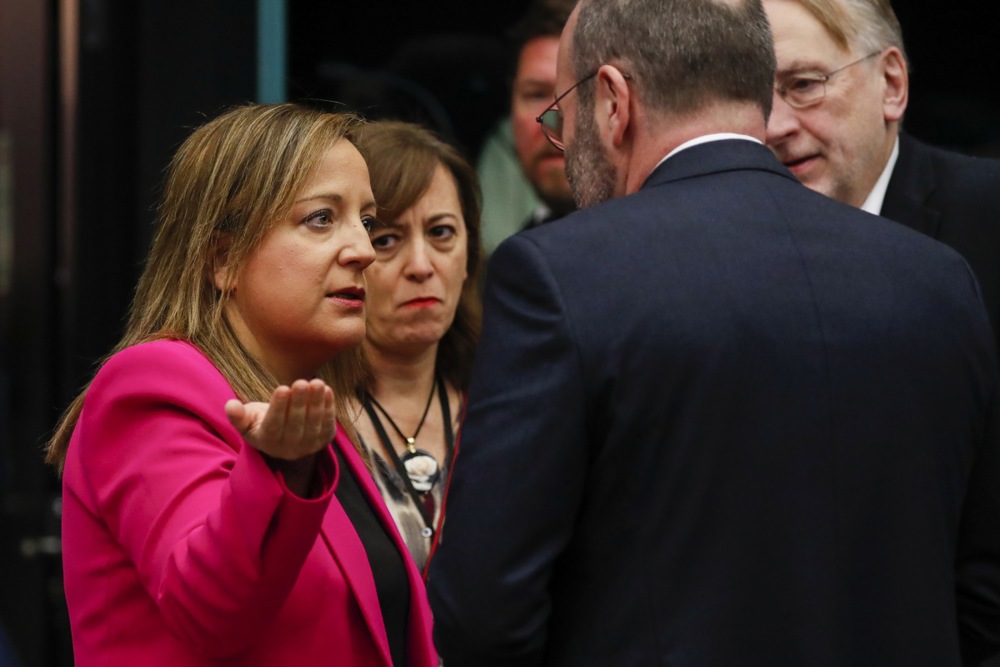In 2016, when campaigners for Brexit warned that a bloc committed since its founding to “ever-closer union” would one day morph into a “European superstate” – gravely undermining member states’ national sovereignty – Europhile media dismissed these fears as unfounded: “spurious”, a “chimera”. Recent developments in the EU, however, demonstrate that the bloc’s federalist ideologues remain as committed to the supranational ideal as ever – and indeed, that it may not be far off.
On Wednesday, the European Parliament voted in favour of a set of radical new proposals to amend EU treaties, by 291 to 274, with 44 abstentions. The proposals were drafted by the liberal Renew group, headed by Belgian MEP and ardent Euro-federalist, Guy Verhofstadt and adopted last month by Parliament’s constitutional affairs committee.
The idea is to weaken the European Council relative to the Commission and Parliament, especially the Member State veto. Under the proposals, more European Council decisions will be taken by qualified majority vote instead of requiring unanimity – federalists like Verhofstadt having long seen the Member State veto as an unwelcome check on the EU’s power. Meanwhile, Parliament would become a co-legislator for the EU’s long-term budget, and would nominate the Commission President, with the Council ratifying the appointment (a reversal of the current system). As well as these significant constitutional changes, the proposals would also confer on the EU, as opposed to Member States, a slate of other competences, including on energy and climate policy, education, trade and foreign affairs.
Perhaps most tellingly, Verhofstadt and Co even hope to rename the Commission to the “European Executive” – that is, to sit alongside its judiciary and legislature. This reveals the giant, deliberate leap towards federation that these proposals represent, not just acquiring many national competences but also explicitly taking on the political language of a democratic nation state.
With EU elites hailing the change as an “upgrade [to] our democracy”, how do the European peoples view the prospect of their absorption into an EU superstate?
Consider what happened during the last round of EU integration. Back in 2001, European elites, buoyed by the recent rollout of the Euro, wanted to push EU integration further than ever before. In December in a Brussels suburb, the European Council conference crystallised that ambition, announcing that “The unification of Europe is near” with the Laeken Declaration. “Citizens undoubtedly support the Union’s broad aims” toward integration, it assured the world, meaning that “at long last, Europe is on its way to becoming one big family”.
The Laeken Declaration kickstarted the Convention on the Future of the European Union the following year. By 2004, the European Constitutional Treaty (ECT) had emerged, a sweeping, idealistic document intended to usher the EU further down “the path of civilisation, progress and prosperity” towards a federal Europe – “the great venture which makes it a special area of human hope”.
Amid these grand federalist dreams, there was just one tiny snag: the European peoples. Theorists like Jürgen Habermas had keenly talked up the idea of “constitutional patriotism”, believing that a “catalytic” constitutional moment could generate a European identity, much as the Philadelphia Convention did for the US. Yet the reality was that few European citizens identified with the EU compared with their own countries, and many were loath to transfer democratic national sovereignty to a distant supranational bloc.
When it came to it, they were not prepared to countenance further integration. Put to the European publics at referendums in 2005, Spain voted Yes, but France and then the Netherlands – both EU founding nations – voted No. To avoid further humiliation, planned referendums in Britain, Ireland, Denmark and Portugal were duly shelved.
However, much as they had talked up their democratic credentials, European elites were not going to let a little thing like the people’s opposition to their plans get in their way. In 2007, the ECT re-emerged, virtually unchanged, as the Lisbon Treaty. The requirement for ratification by referendum – previously deemed necessary to unite the European peoples around the new constitution – was dropped. Further integration was quite clearly against the wishes of the European peoples, yet the EU took up further powers nonetheless.
The current EU integration drive is repeating the same undemocratic dynamic. It began in 2019 with the Conference on the Future of Europe, essentially an extended citizens’ assembly. These toothless initiatives have the advantage of lending the appearance of democratic input to the elites’ plans, without having any of the substance – much unlike a referendum on EU integration, where independent-minded citizens might end up voting the wrong way.
An EU summary of the deliberations, which concluded last year, show the conference as masterclass in political framing. We learn that the conference has “[achieved] its purpose”, which had been to provide “concrete, actionable, sometimes visionary, proposals that show the direction in which the EU should develop”. Note that questions of whether the EU should halt or reverse integration – the unwelcome message of those 2005 referendums – are simply not on the table in this framing of the “deliberations”. Instead, its 49 proposals, some of which are the basis for the current treaty change, set out “suitable actions” the EU might take “to rise to the challenges of the present and the future”. In a way, it doesn’t really matter what those specific proposals were, given they all necessarily point in the same direction: more “challenges” for the EU to solve, and thus more competences, greater budgets, and further integration.
Thus, like a rabbit out of a hat, an institution with an unelected executive, which has been voted against by countless European publics and referendums (when they are even held, that is) is nevertheless able to manufacture a mandate for further aggrandising its powers – all in order to “update democracy”. It is rather like the words of Malcolm Tucker, the ruthless government fixer in the British political satire The Thick of It: “Of course you have a choice. You can choose how you say yes.”
For now, all this is still only in the pipeline. The treaty changes need unanimous support in the Council to be adopted, meaning sovereigntist holdouts like Hungary and Slovakia are certain to veto it. Nevertheless, as Polish MEP Jacek Saryusz-Wolski told Remix last month, in the history of treaty changes, “even the most resistant give way and yield under pressure over time”, as Britain, France and the Netherlands eventually did with the Lisbon Treaty. He worries that with the Commission’s increasing willingness to bully smaller states through blocking budget funds may eventually cause them to break. It will only take one slip-up. The proposed treaty changes would mean that further changes would only need four-fifths, not all, members to be on board.
With the drive towards a European superstate seemingly inexorable, Brexiteers’ decision to safeguard Britain’s democratic sovereignty is looking wiser by the day.





